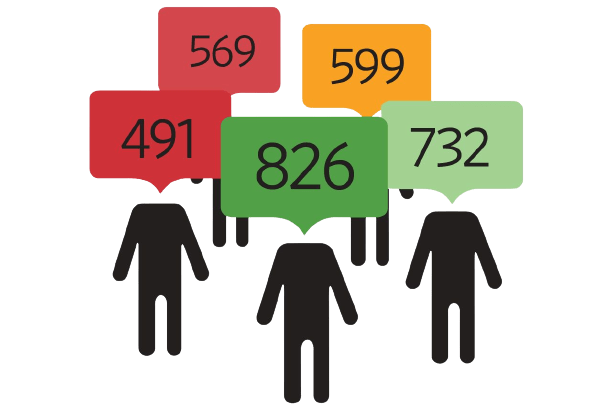
“The devil works hard, but the credit scoring system works harder,” according to up-and-coming credit agency NogginHQ in their one-of-a-kind zine, explaining their mission to modernize traditional credit assessments. This sentiment is echoed in the increasing popularity of alternative credit scoring methods, as well as the fintechs behind them.
Financial inclusion plays a major role in this shift, with lenders and other financial institutions looking to bring a broader scope of borrowers into their customer base with decisions based on new scoring methods. The goal is to increase lending to currently underserved segments.
Companies like NogginHQ are pushing for this fairer environment so that those underserved borrowers wishing to secure a lending product have a better chance of being approved. Improved access to credit helps, for example, consumers weather financial challenges and businesses to access the capital that they need to operate and grow. That includes those with no credit history, previously adverse credit and those with thin credit files.
In the UK, 5 million plus people, dubbed the “credit invisibles” by some outlets, are lacking in or devoid of any credit history. All cases are individual but a common indicator for the underrepresented is the limited exposure to financial education. 24 million UK adults are unconfident when it comes to money management and only 67% of the country are determined as “financially literate”.
But is financial education the be-all-and-end-all solution? New financial products are appearing all the time so how are consumers meant to keep up?
Knowing your credit score and being aware of how it is calculated and impacted is a crucial first step. In many ways it is easier now than it was for previous generations. New providers have made it easier for consumers and businesses to access and learn how to improve their credit scores. And technology, such as open banking and AI, coupled with alternative sources of data, are being leveraged by innovative start ups.
Apps like ClearScore, TotallyMoney, and UpScore spread the net when analysing consumer data, using learned logic to assess affordability, compile comprehensive credit reports and provide tailored credit-building tools either in-app or through trusted third parties.
With the cost-of-living-crisis in full swing, better utilizing data to paint a clearer picture of a borrower’s financial health and assess affordability is a priority for lenders. In the wake of the Christmas period and consumer’s increased reliance on Buy Now, Pay Later products (63% used these services for Christmas spending in 2022), for example, now is the time for alternative credit scorers to prove their mettle. By providing new and transparent means of fairly assessing affordability , these firms have the potential to support fairer, more responsible, and greater access to credit. Looking ahead, they can also support consumers and businesses with clear pathways to improving their all important credit scores.
Will alternative credit scoring become the norm?
Can open banking data empower the financially underserved?
_______________________________________________________________________
FTT Lending, taking place on the 19th March 2025 in London, brings together the next generation of lenders, fintechs, tech innovators and the non-financial brands powering the future of lending.











